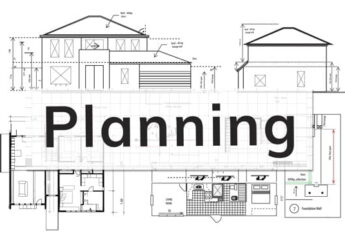Should You Be Worried About The Rise In Mortgage Rates?
by Sumona Real Estate Published on: 21 May 2022 Last Updated on: 23 May 2022

The news of the ‘rise in Mortgage rates’ is complicated.
Because it depends entirely on who you are and how closely you are associated with mortgage loans.
The news of the rise in Mortgage rates has put most people in a difficult financial situation. Especially those who took out mortgage loans during or after the COVID-19 pandemic.
If you’re already looking for ways to mitigate the effects of rising mortgage rates, then you must have some deals with good mortgage loans.
Whatever the case may be, you’ve come to the right place to seek your answers.
But before we get into any of this, I think you should know what mortgage rates are and what consequences the rise in mortgage rates could bring to clearly understand whether you should be worried or not in this situation.
All you need to know about the mortgage and their Rates
What Are Mortgage Rates And Their Rates?
A mortgage is a term for real estate that is used as collateral to secure a loan. After making full repayment on a mortgage loan, borrowers can reclaim full ownership of the property.
It’s just that a mortgage is a type of loan, but not all loans are mortgages. Mortgages somehow have more things to consider besides the interest rates. In 2022 we all can expect a huge rise in Mortgage rates.
Mortgages are also called “secured” loans because they are backed by collateral where the borrower agrees to provide the lender with collateral if they default on their payments. The home serves as collateral in the case of a mortgage.
However, if you fail to make your mortgage payments, your lender may foreclose on your home.
Types of Mortgage Rates

The rise in mortgage rates, also known as mortgage interest rates, is the interest applied to the mortgage. There are basically two types of mortgage interest rates.
- Fixed-rate
These interest rates you’re charged stay the same for a number of years, typically between two to five years.
- Variable-rate
Variable rates, however, are affected by different factors. Like inflation, the rate of economic growth, federal reserve monetary policy, the bond market, or the housing market conditions. And the length of these loan terms is quite long (starting from 10 to 30 years).
Increasing Numbers Of The Mortgage Rates

Mortgage rates are increased or decreased to control inflation. Higher inflation means more outflow of the money resulting in a high price of goods and services. Thus, to stop the outflow of the money, the financing bodies of the nation increase interest rates simply to confine the expenses.
But, how would you know whether you should be worried about mortgage rates expected to rise in 2022?
People are affected in various ways by higher interest rates. Higher interest rates have a different impact on different types of consumers. The rise in Mortgage rates will disproportionately affect those with a large number of mortgages (often the first-time buyers starting this in their 20s and 30s), but they are good for money savers.
For example, the lowering of inflation may necessitate increasing interest rates to a point where those with a larger amount of mortgages face real hardship. Bug, those who have saved money, on the other hand, may be in a better position.
Components Which Are Affecting The Mortgage Rates?

Yet there are some facts that let us calmly brood about the impacts of mortgage rates. The cause for rising in mortgage rates can be of various types. Here are the three types of com[onenst which are affecting the Mortgage rates.
1. Time-lags
The impact of higher interest rates can take up to 18 months to manifest. For instance, if you are halfway through an investment project, you are likely to complete it. However, higher interest rates may deter new project start-ups in the coming year.
It is dependent on the economy’s other variables. A rise in interest rates may have less of an impact on reducing consumer spending growth at times.
For instance, if house prices continue to rise, people may believe that despite the increase in interest rates, there is a real incentive to keep spending. However, you should also keep in mind that prices eventually come down too.
2. Real Interest Rate
It is worth bearing in mind that the real interest rate is the most important thing. The real interest rate is the nominal interest rate minus inflation.
It, however, depends on whether the rise in Mortgage rates is passed on to consumers. Since banks may decide to reduce their profit margins and keep commercial rates unchanged.
On the other hand, those who have recently bought a house borrowing way more money than their annual income is most likely to have a hard time paying interest. On top of that, if house prices fall, many of these borrowers will be left with negative equity in their homes.
3. Expectations
If people expect low-interest rates and they arise unexpectedly, it may cause people to find they can’t afford mortgages or loans. The concern is that after several years of zero interest rates, people have gotten used to low rates.
Because it becomes more costly in comparison to the financial institutions, borrowing more money. There are some financial institutions that often increase the rates they charge their customers to borrow money. Individual consumers are impacted by increases in their mortgage and interest rates. It especially happens if these loans carry a variable interest rate.
When the interest rate for mortgages increases, the amount of money that consumers can spend also decreases.
Though, consumers still have to pay their bills. And, when all of those bills become more pricey, households are left with less disposable income, which directly means that businesses’ revenues and profits drop.
So, as you can see, the rising rates of businesses. These are not only affected by the higher amount of borrowing costs, but they have also revealed the negative effects of withering consumer demand. Both of these two factors can consider in the earnings and differences in the stock prices.
Should You Be Worried About The Rise In Mortgage Rates?

So, what do you think about it? Should you be worried about the rise in mortgage rates or not?
Moreover, the higher rates of interest will always tend to lower consumer spending and asset types, which eventually lead to a fall in aggregate demand (AD) too. Simply talking in the context of the country’s economy.
If the Aggregate Demand gets lower, then it will tend to cause:
- The lower amount of the economic growth, which is perhaps even counted as the negative growth – recession)
- The higher unemployment rates. It’s not hard to determine that if the output falls, the firms will produce rarer goods and, therefore, demand fewer workers. Leading to a high chance of unemployment.
- Improvement in the current account.
Well, the higher rates are going to reduce by the spending on the import issues due to the lower inflation. This will help you to improve the competitiveness of exports. Something good on the side.
Conclusion:
The rise in Mortgage rates is bringing massive changes in loan procedures. According to the loan norms and protocols, the amount is kept changing every year. For knowing the ups and downs of Mortgage rates, the government policies regarding the terms and conditions are the most important things you should know.
Read Also:







































































































